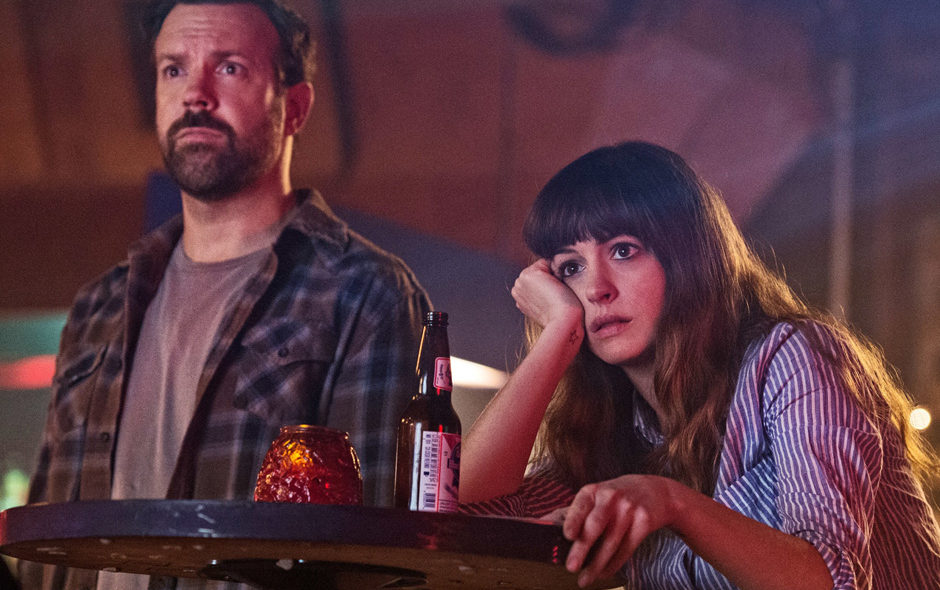Colossal is a monster movie. It’s also a movie about personal responsibility and addiction. Intertwining the figurative into a high-concept sci-fi premise is no easy task, but Spanish director Nacho Vigalondo is not only able to convincingly tell a story about alcoholic protagonist Gloria (Anne Hathaway) (and the impact her mistakes have on the people around her), he makes it entertaining and consistently funny, all while paying homage to 1950s monster movies in respectful, subtle strokes.
Gloria is an unemployed writer who’s kicked out of her boyfriend’s New York apartment for going on one too many benders. She moves back to her parents’ abandoned house in her sleepy suburban hometown while failing to put her life back together.
A run-in with childhood friend Oscar (Jason Sudeikis) gives Gloria both a means to re-start her life and a reason to keep drinking: he hires her to tend bar at the establishment he inherited from his deceased father. Suddenly, Gloria’s right back where she found herself, drinking with a new group of friends. Every morning she wakes up groggily in a new place after yet another bender. She then discovers with horror that somehow, she’s connected to a giant monster that’s taking out buildings and people in Seoul, Korea.
Letting in her new friends on the secret leads to the discovery that Oscar is also connected to the monster. Despite his friendly offers to help Gloria re-establish her life, Oscar turns out to be even more of a raging alcoholic than she is —which means he’s unpredictable when it comes to sparing innocent Koreans’ lives with his newfound power. This pits Oscar and Gloria into a literal battle of control over the kaiju wreaking havoc halfway around the world.
The film becomes a sci-fi dramedy, one tinged with an affable absurdity recognizable to those familiar with Vigalondo’s work. Many reviews of Colossal have viewed it as commentary on the “Nice Guy” phenomenon. Oscar transforms from a helpful handyman into a literal monster, pinning Gloria into an abusive relationship and not letting her leave his bar or their hometown. This, they claim, is about the inherent power dynamic men have over women. But such an interpretation is vastly incomplete.
What Colossal is really about is addiction. It uses masculinity as a vehicle for vulnerability, self-hatred and hurt pride. Sudeikis’ turn from the perky friend to the scowling beer guzzler is downright impressive, and close-ups of his stink eye are as hilarious as they are eerie. This is the dark side of addiction.
Oscar has always secretly hated Gloria for her intelligence and living a glorious life in New York. He’s able to initially hide these feelings because of his pride. As the plot thickens, though, his hatred spills out.
Oscar and Gloria are two sides of an addictive personality. Gloria is out of control, forgetful and blissfully unaware how pathetic she comes across when she’s drunk. That’s one manifestation of the condition. Amidst that recklessness though, is a girlish charm: Hathaway’s frizzy brunette mane and her devious smirks are endearing. Oscar’s manifestation of alcoholism is that of an outwardly high-functioning, inwardly self-hating personality.
Colossal is a rich character study teeming with figurative ideas about a serious mental illness, but couched in an absurdist universe that makes it entertaining to watch. It’s an original work that lightly references sci-fi conventions but doesn’t need a pre-existing universe to thrive. It’s exceptionally funny to boot.
Colossal may not have the marketing potential to make a billion dollars at the box office, but it might just teach you something and give you a good time in the process.

